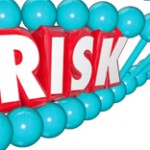SAN FRANCISCO—Rheumatologists have to look no further than the American College of Rheumatology guidelines to know that the options for patients with lupus nephritis are sometimes not very appealing. The first-line choices are either mycophenolate mofetil (MMF) plus glucocorticoids or cyclophosphamide (CYC), also with glucocorticoids—and all of their attendant side effects. The problem: evidence, said…







